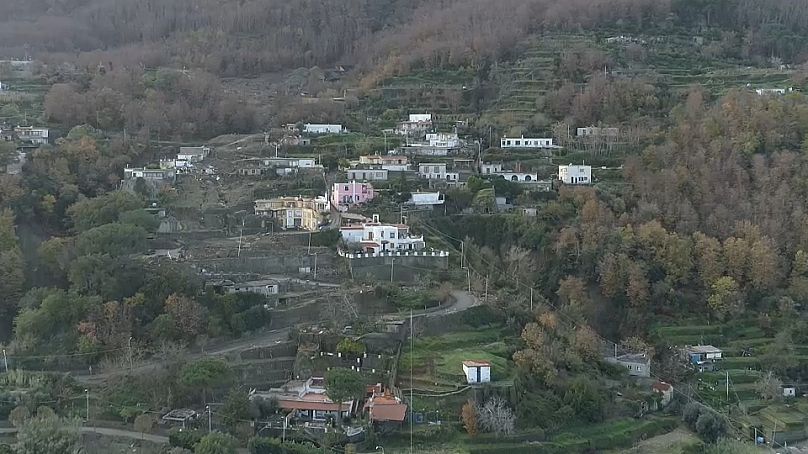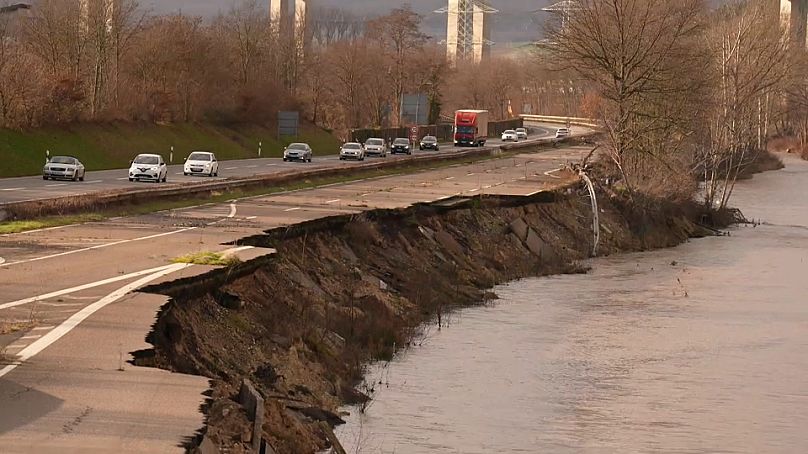Euronews Witness investigates extreme weather events in Italy, Germany and France, and asks how Europe is preparing for the future.
Extreme weather events have wreaked havoc across Europe at an alarming rate in recent months. A landslide on the island of Ischia, off the west coast of Italy, last November is just one of the latest examples of the devastating consequences such incidents can cause.
Euronews Witness travelled to Italy, France and Germany to investigate how cities in Europe are adapting to the dangers posed by climate change.
Illegal housing and lack of maintenance
A landslide in the town of Casamicciola in Ischia last November claimed twelve lives and forced five hundred residents to be evacuated from their homes.
But despite the devastation, some locals still defend their right to live in a natural hazard zone, where much of the housing was built illegally. An enquiry is ongoing to ascertain whether this was the case for the houses that took the brunt of the landslide.
What’s more, the Italian State is accused of encouraging this illegal construction because of its policy of ‘pardons’, which allows citizens, for a fee, to bring their property in line with housing regulations.
Critics say this primarily encourages illegal construction instead of preventing it, and that the only way to curb it is to tackle the underlying problems that feed it. In other words, decent housing should be affordable without having to resort to illegal construction.
However, the substantial lack of maintenance of the rainwater management system, coupled with a record level of rainfall, is key to explaining the disaster, according to experts.
The system used to manage the rainwater was built following another massive landslide in 1910. The weirs were over 10 metres long and 6 metres high. Today they're mostly hidden in the shrubbery.
"Unfortunately...these basins are now filled with rock and soil. The water, therefore, flows out of them and down the mountain and there’s nothing to stop it," explained surveyor Guiseppe Colella.
Are floods now 'unavoidable'?
Last year, extraordinary floods swept through the Ahr Valley, in Germany, causing more than 130 deaths. And yet, all except 34 houses among the thousands that were damaged will be rebuilt. As is the case in Italy, residents there insist they prefer to accept the risk of flooding rather than move to a different area.
Riverbed management is crucial to protect residents. The Ahr river, for example, has been allowed to meander again in a bid to lower the flow rate.
“You can’t avoid the flood from happening, but you can reduce the damage,” says Patrick Kluding, who is in charge of waterworks in Cologne, in western Germany.
Over the past thirty years, the city has developed one of the world’s most advanced systems to predict how fast a flood can spread and to keep the Rhine under control through a mobile protection system.
Refuge floors
After storm Xynthia claimed 29 lives just in the coastal town of La Faute-sur-Mer, in western France in 2010, authorities developed a complex legal system to shield cities and residents from the effects of climate change.
"To get upstairs we needed to exit the house. But there was so much water we couldn’t go out," explains Elisabeth Tabary, a former resident who lost both her husband and grandson that day.
Residents are now legally obliged to build an elevated refuge floor.
Elisabeth’s house was among one of the 600 which were demolished in the so-called 'death basin', where a golf course now stands. €100 million has been invested in the Vendée region to restore major flooding infrastructure, such as dams.
Despite all this, it is clear that cities across Europe are facing a race against the clock. And fear is mounting that climate change is unfolding faster than we are able to respond.













